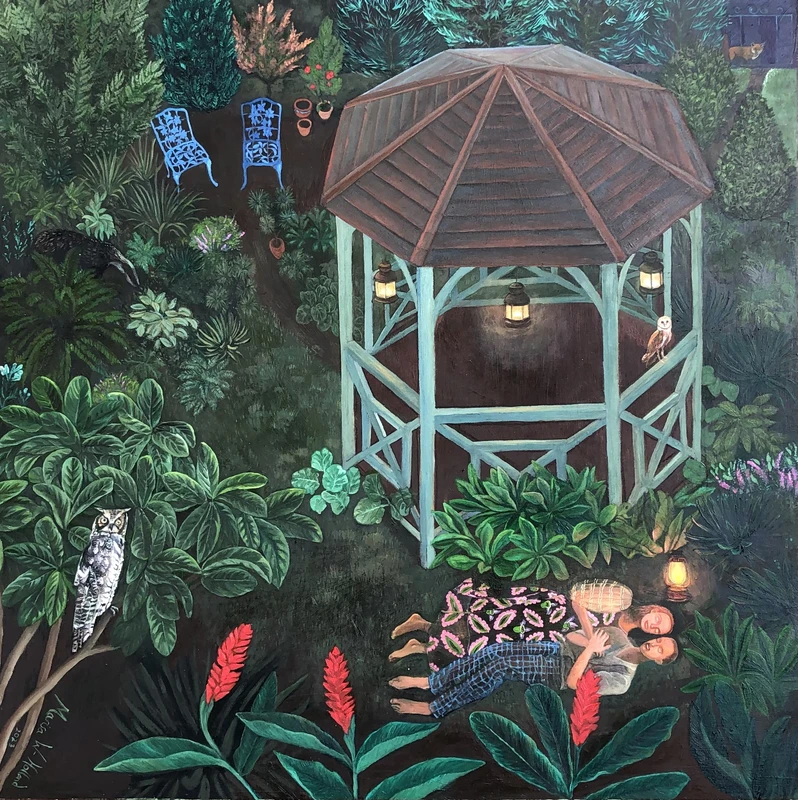'Slippage' - the Caribbean in flux
11 Oct-15 Dec 2024


198 Contemporary Arts and Learning is proud to be staging a new exhibition ‘Slippage: the Caribbean in Flux’ with new bodies of work by four of the most exciting emerging contemporary artists from Jamaica and Trinidad.
The aim of the exhibition is to challenge thinking in ideas around historical memory, contemporary identity, (not)belonging, and the possibilities that alternative histories/stories hold for the cultural imagination in post plantation societies. By presenting specific bodies of work by these four artists, working in a variety of mediums, and in these ideas, we can interrogate the work in context to their slippage from the traditional practices of portraiture and historical archive, in the use of the self and the body, and the archives of the region, to articulate societal issues in the specificity of post plantation societies in the Caribbean. The slippage occurs in the oscillation between attempts to define ourselves and our experiences within a rigid and dominant ideological traditional practice through Western art history which is still prevalent in the art education in the Caribbean.
Painter Greg Bailey’s (Jamaica) utilizes the potency and political hierarchy of traditional oil painting techniques as a frequency through which he communicates his reactions towards the impulse of society. In this body of work, he uses portraiture as a lens through which to think about Jamaica’s justice system and the systemic societal relics and psychological residues that remain and within which we still live as ambiguities, and the pressure that places on the psyche. Camille Chedda’s (Jamaica) interdisciplinary practice in drawing and sculpture explores ideas around contemporary identity and cultural weight, de/construction in built culture and the sacrificial nature of post colonial violence as a contemporary forgetting/surviving. Self taught artist Rodell Warner’s (Trinidad) work explores digital media and AI to imagine new archival secrets- the hidden lives, the unseen moments, the in/visible truths, of the enslaved and the indentured of the Caribbean, birthing new possibilities within these colonial recorded histories. Painter Marisa Willoughby Holland uses personal intimacies through the self as a lens through which to examine longing, nostalgia and displacement.